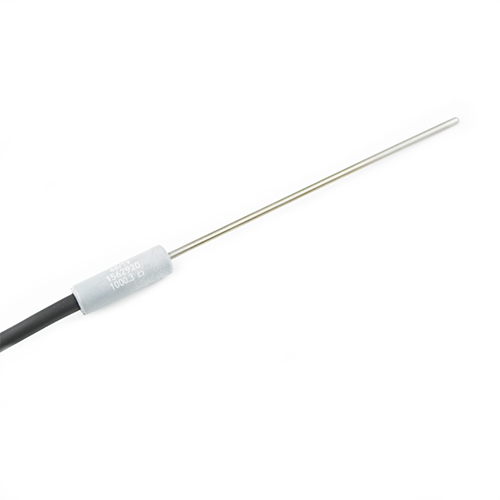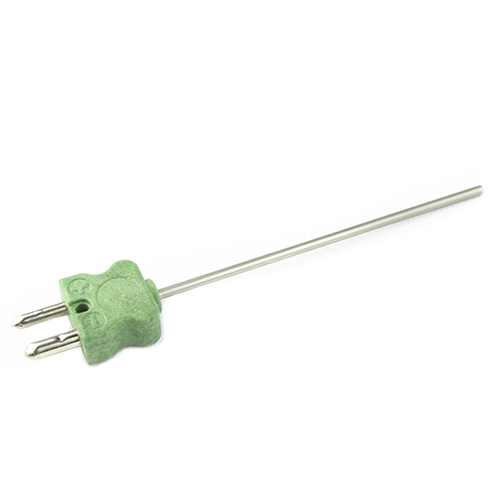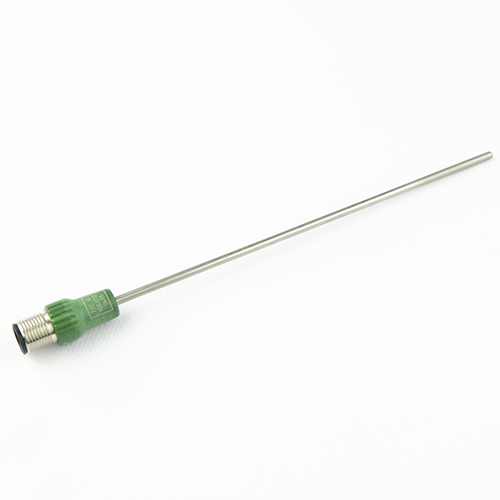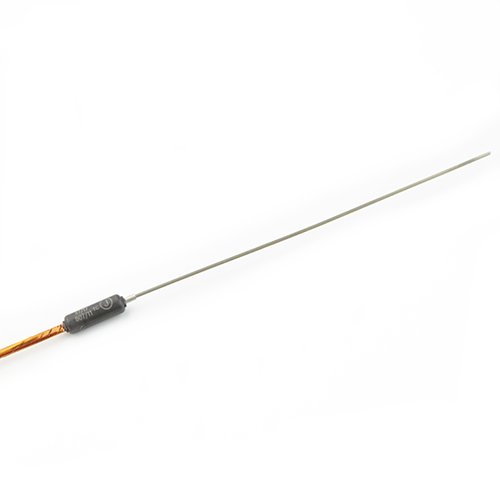Mineral Insulated Probes
What is a Mineral Insulated Probe?
Mineral insulated probes are made from mineral insulated metal sheathed cable (frequently called MIMS cable). It has a metallic outer sheath. Inside, the conductors are insulated with densely packed magnesium oxide. This construction bears a lot of advantages for temperature sensors. Mineral insulated probes are often referred to as sheathed temperature sensors.
Characteristics of Sheathed Probes
A sheathed thermocouple has an extremely wide temperature range: from below -200 °C up to more than 1,100 °C. Furthermore, sheathed thermocouples and RTD are resistant to vibration and scratches which proves their longevity. At the same time, they are bendable. Surprisingly, they are affordable as well: MI cable costs about the same as fiberglass cable. We manufacture MI probes in diameters from 0.25 mm up to 8 mm. To ensure maximum water tightness, we mould either a connector or a robust cable transition onto the probe.












